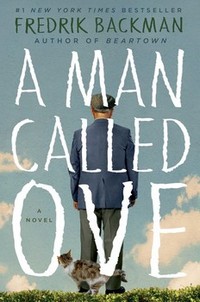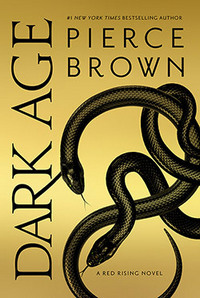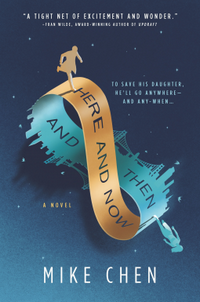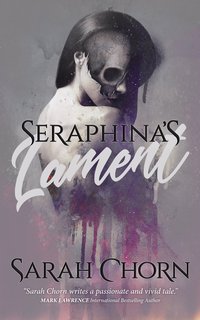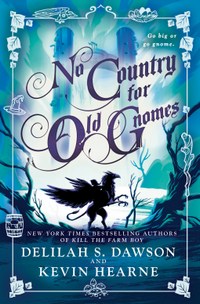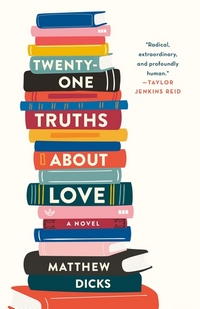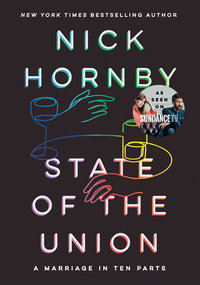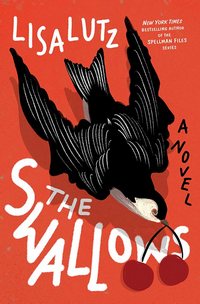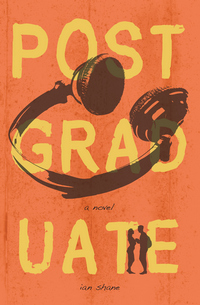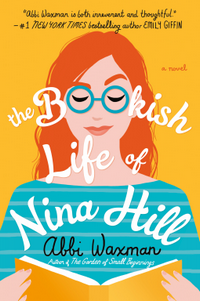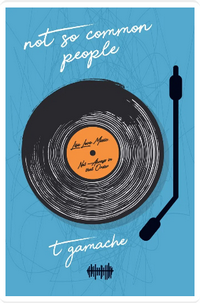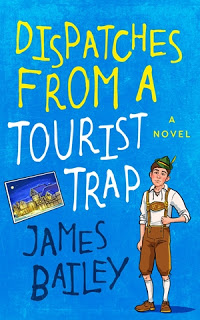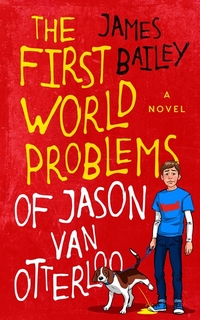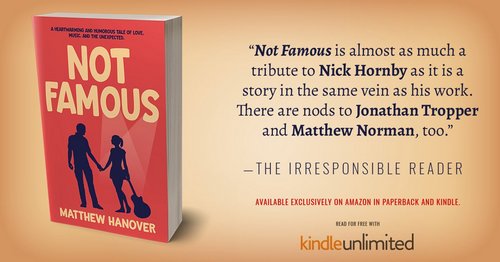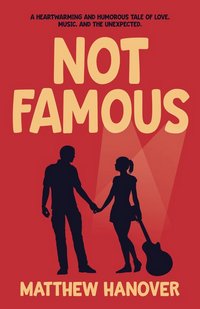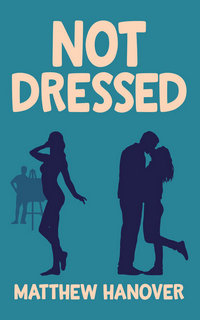 |
Not Dressedby Matthew Hanover eARC Read: January 3-6, 2019 |

“Hey there, Jake. This should be fun, right?”…
“I guess,” I say.
“You don’t sound too excited,” she says as she takes a hair tie off her wrist and pulls her disheveled hair back into a ponytail.
“Yeah, well. I’m not good at dancing.”
“Obviously! That’s why you’re here. Same as me. I’m probably just as bad as you. But we’ll learn together, okay?”
“Okay.”
“Darmok and Jalad at Tanagra,” she says.
“I…have no idea what that means.”
“It’s from Star Trek…Actually, Star Trek: The Next Generation. It means we’ll work together to solve a common problem. In this case, the problem is learning how to dance.”
“I gotcha. So, you’re like…a Trekkie?”
“Was my sweatshirt not a big enough clue?”
“No, I just—”
“You’re not a Star Wars fan, are you? If you are, you’ll have to find a different partner.”
Jake Evans is our protagonist—he’s a decent enough guy, who could probably use some maturing (which means he’s like 90% of guys in their twenties). He’s got a great girlfriend (although the relationship seems a bit rocky when we meet him) and is second-guessing his chosen career (partially because he has a horrid employer, and partially because architecture isn’t the career he thought it would be). There are signs that he’d be a pretty fun guy to hang out with, but when the book opens he’s got a pretty good-sized cloud over his head between the girl and the gig.
Lindsay’s his long-time girlfriend. She works in radio and is very passionate about her job. She’s enjoying a little bit of success, and has a hard time relating to Jake’s struggles. She’s the producer and in-all-but-name on-air sidekick to a Boston-area conservative talk show host, who calls her “Lefty Lindsay.” (don’t worry, politics are absent from the book!) At least when the book opens, I really didn’t see why the two of them were a couple. There’s a good chance that neither of them rembered at that point, either, it had been so long.
Two things about their relationship provide most of the initial conflict for the plot. First, due to some financial hits they’ve taken recently, Lindsay has taken some modeling gigs to make some extra money. She did it back in college, which was recent enough that she still had connections. Why didn’t Jake do something to make extra money? He’s having a hard enough time finding a replacement full-time job that it didn’t seem like a good idea to try to add another job search to his plate. Besides, Lindsay’s moonlighting is profitable enough. What she neglects to mention to Jake is that this modeling is for art classes at a local college. And, well, none of these artists-in-training are working on fashion degrees—clothing gets in the way of what they’re learning to draw/paint/sculpt. Jake’s an open-minded kind of guy, except when it comes to this, it’s not pretty when he finds out (although it’s a pretty amusing scene for readers when he does).
Meanwhile, Jake’s sister’s wedding is coming up and Lindsay has decided the two of them need to learn to dance before it. Besides, it’s a fun activity for the two of them—they never go out mid-week anymore, and their relationship could use a boost. So she signs them up for a dance class, and then tells Jake about it after she paid for it, so he pretty much has to agree to it, but isn’t really that interested. So she basically promises him sex if he goes. Which pretty much seals the deal. But then Lindsay’s show gets moved to a new (and better) time slot. So, in addition to not being able to make the class, the couple will hardly see each other during the week. Her plan is that Jake will go, and then on the weekend, teach her the moves (he insists on getting his payment in advance for this).
Jake hates this new plan, and is convinced that he’s going to be stuck dancing with the instructor (after he and the reader meets this instructor, no one thinks this is going to be fun for him). Thankfully, just before class starts, Kaylee walks in. You read her opening dialogue up above. She’s a few years younger than Jake, taking some time out from college to figure out what she wants to do with her life, and is a major geek. She’s almost a Manic Pixie Dream Girl, but doesn’t fit the category in a few ways (I’m only using that term because I’m afraid this post is getting too long and I want to pick up the pace). She’s also my favorite character of 2020 so far (granted, that would mean more if it wasn’t January 13th).
Kaylee and Jake strike up a nice little friendship during the class, and pretty soon, he’s going so he has an excuse to hang out with her. The two of them are fun together—she’s socially awkward and embarrassed to be herself, Jake tries to shake her out of that, and even encourages her to let her Geek-Flag fly (even if he doesn’t get any of it). Meanwhile, she’s encouraging about his job hunt (as opposed to Lindsay, who mostly nags or wants him to find a way to succeed where he is), and gets him to be a little less angst-y about his life. I like Jake more when he’s in friend with Kaylee-mode over guy with Lindsay-mode. But what do I know? I have a tendency to pick people the protagonists don’t in these situations (I won’t provide examples because I’d expose myself to too much ridicule).
The one last bit of Jake’s life we need to talk about is his job. It’s horrible. He has a nice group of work-friends who band together for mutual support (and complaints), but the atmosphere at work is toxic, and their superiors would be enough to turn anyone against their chosen field. For example, in the first chapter, Jake’s two-year anniversary with the company happens and he asks his boss about scheduling his annual review (which will hopefully involve a raise, which he could really use). His boss stammers and suggests an alternate date, nine months away. Yeah, Jake’s bad attitude toward work makes a little sense, doesn’t it?
I worked as a draftsman at an architecture firm some years ago, and while the atmosphere there wasn’t at all what Jake experienced, Hanover did do a great job of capturing the kind of work and personalities that I saw—which doesn’t really match the typical depiction of architects in fiction. I liked that bit of realism. (I asked Hanover about that in an upcoming Q&A, but I haven’t read his responses yet, looking forward to seeing where that authenticity came from).
Getting back to Jake’s life—what we have here is a stagnant (at best) relationship that’s got a couple of pretty big things to work through; a job situation that needs addressing; and a new friend that is really the only positive thing in his life. Jake’s life is basically begging to be shaken up, is Kaylee going to help instigate that?
There’s something about Hanover’s style that I can’t express, but I wish I could. This book (like last year’s Not Famous) is effortless to read. When I started this book, it was late in the day and I thought I’d just stick a toe in the water, maybe read about 10% of it. Before I knew it, I was about a third into the book (and were it not for the time of day, I’d have probably finished it in one sitting!). It’s funny, it’s sweet, it’s infectious, it’s engaging as anything I can remember. I cared about these characters and got invested in their lives faster than I typically do.
Jonathan Tropper tends to have certain character types that show up in every novel—particularly the wise sister/friend-who-might-as-well-be-sister* (many authors do this kind of thing, I know, but Tropper is who I thought of when I was reading this book). Hanover shows signs of the same thing—sisters play a big role in both of his novels to date. He doesn’t use them the same way that Tropper does, don’t get me wrong, but his male protagonists are more honest and open about their emotional lives because of sisters. This is neither good or bad, it’s just a trait that he may have—it’s something I’ll be looking for next time. (again, see the Q&A for more on this topic). I like that there’s someone who can draw this out of a character without the need for alcohol, drugs or trauma—also, that he bares his soul first to someone who isn’t a love interest.
* There are other types that Tropper utilizes constantly, too, if I ever get around to my big re-read of his corpus, I’ll end up compiling a chart.
There’s a bit of conventional wisdom discussed here that I didn’t know before reading this book.
“You realize that dancing is basically foreplay, right?”
“So I’ve heard.” [Jake replies]
Four chapters later:
“Because dancing is, like, totally foreplay, you know.”
“Why does everyone keep saying that?” [Jake asks]
I counted someone telling that to Jake four times (with at least one more allusion). Is this really a thing that everyone thinks/says? I may need to cancel some of my daughter’s plans for the next 20 years…
I’d forgotten that Hanover had said there’d be a link between Not Famous and this book. It’s small, and if you haven’t read his other novel, you won’t miss anything. But if you have, you’ll enjoy the brief catch-up you get about the lives of the protagonists of that novel. It brought a big grin to my face.
There was a slight flavor of Nick Hornby wanna-be-ness to Not Famous that’s not present here. Instead, what Hanover has done is take that same voice and put it to use telling a story that’s all him (while being the kind of thing that Hornby readers will appreciate). I do think that Hanover could go a bit deeper in his characterizations (I have very little sense about Jake apart from work/Lindsay) and his plots could add a little more complexity. I’m looking for a few degrees of depth/complexity, not much. But that doesn’t stop me from loving this world and characters, and it doesn’t keep me from encouraging you all to grab this book when it releases next month.
This heart-warming tale about being who you are and finding acceptance for it is a real winner. Adorkable, irresistible, and just fun—Not Dressed is sure to please (if you are so led, book is available for pre-order). I don’t know what Not Description is next for Hanover, but I’m already eager to read it.
Disclaimer: I received a copy of this book from the author in exchange for my honest opinion and this post. I appreciate the book, but it didn’t sway what I had to say.

![]()


